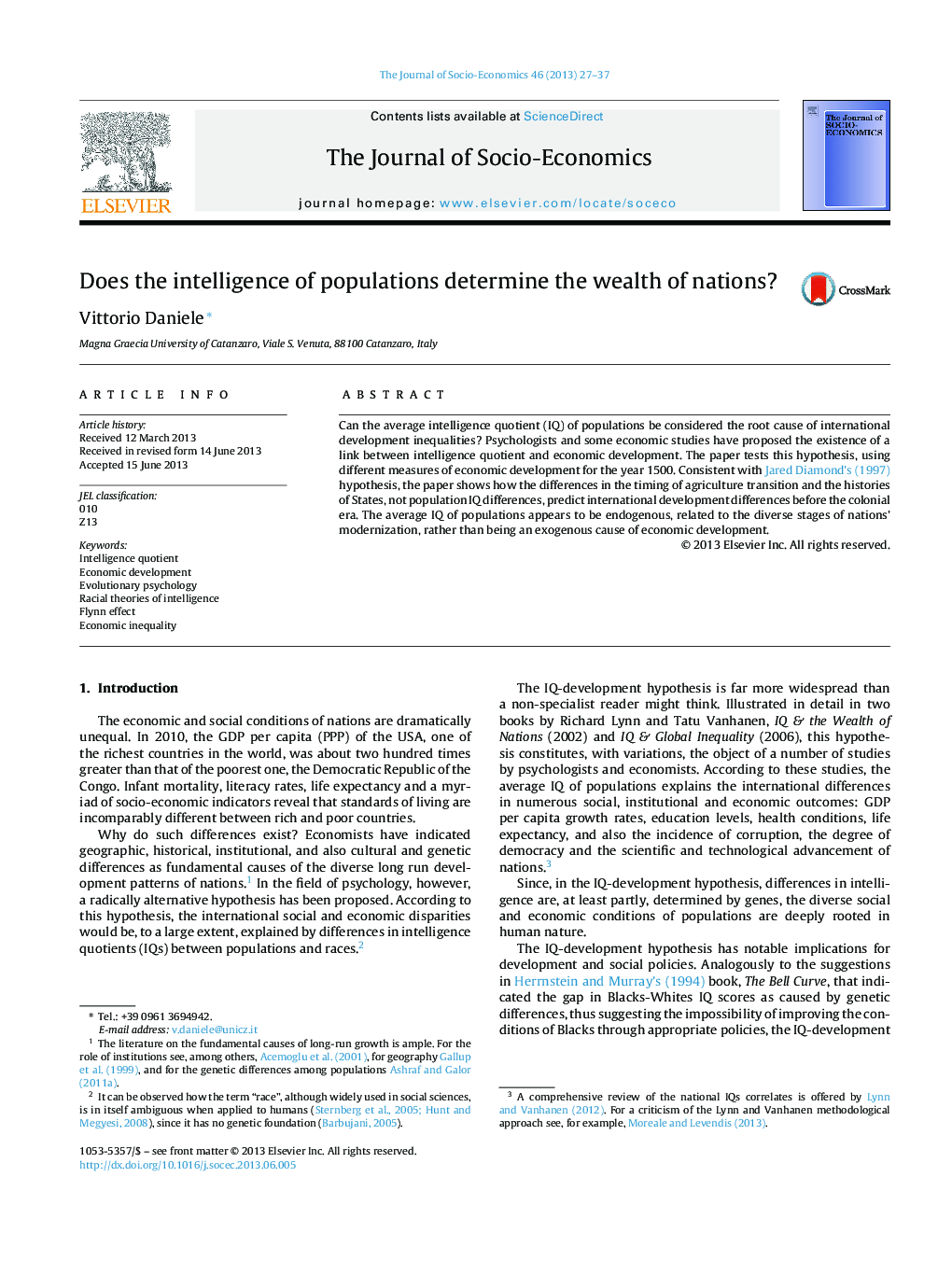| Article ID | Journal | Published Year | Pages | File Type |
|---|---|---|---|---|
| 7370575 | The Journal of Socio-Economics | 2013 | 11 Pages |
Abstract
Can the average intelligence quotient (IQ) of populations be considered the root cause of international development inequalities? Psychologists and some economic studies have proposed the existence of a link between intelligence quotient and economic development. The paper tests this hypothesis, using different measures of economic development for the year 1500. Consistent with Jared Diamond's (1997) hypothesis, the paper shows how the differences in the timing of agriculture transition and the histories of States, not population IQ differences, predict international development differences before the colonial era. The average IQ of populations appears to be endogenous, related to the diverse stages of nations' modernization, rather than being an exogenous cause of economic development.
Keywords
Related Topics
Social Sciences and Humanities
Economics, Econometrics and Finance
Economics and Econometrics
Authors
Vittorio Daniele,
